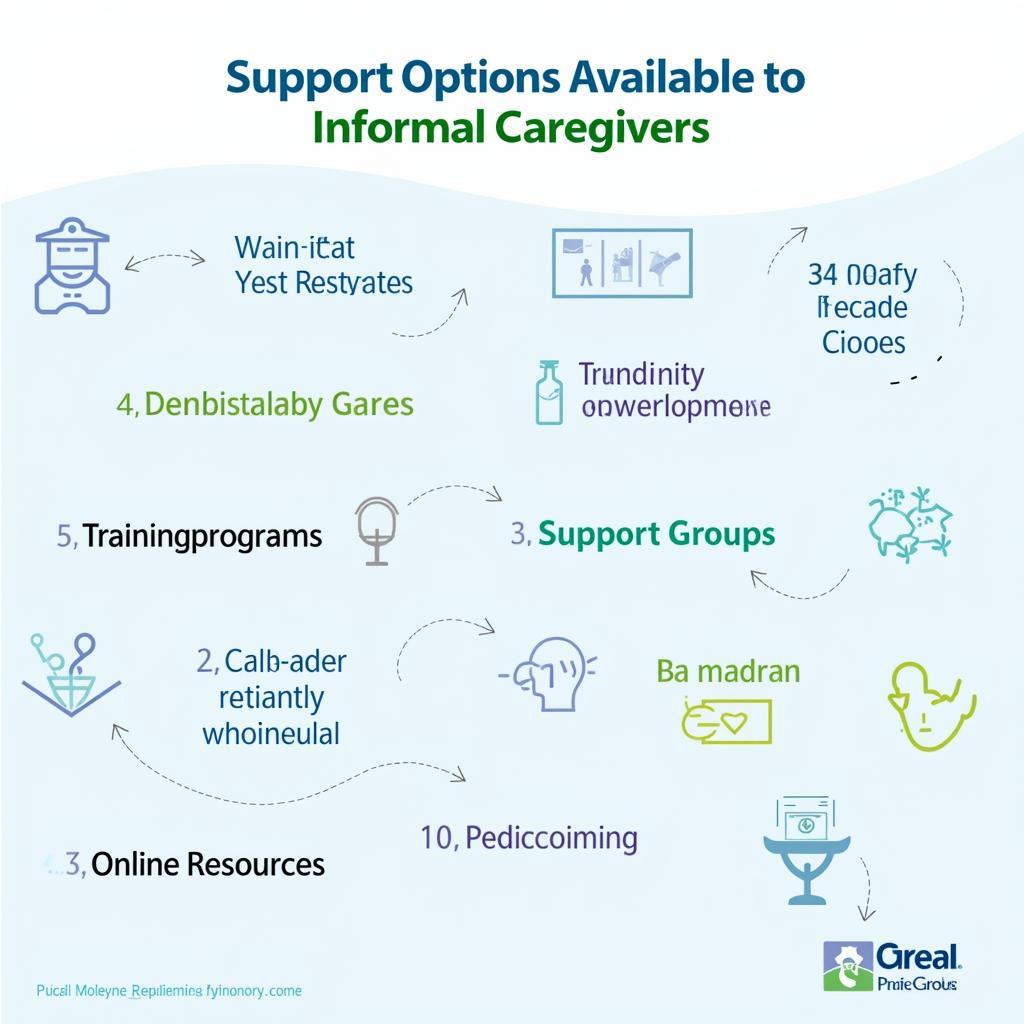How Can Informal Care Help Service Provision?
Informal care plays a crucial role in supporting formal service provision, especially in health and social care. It refers to the unpaid support provided by family members, friends, and neighbors. This can range from assisting with daily tasks like bathing and dressing to providing emotional support and companionship. Understanding how informal care helps service provision is essential for developing effective and sustainable care systems.
what is long-term care or home and community-based services
The Impact of Informal Care on Service Provision
Informal care significantly reduces the demand on formal care services. By providing a substantial amount of support, family and friends alleviate the pressure on professional healthcare providers, allowing them to focus on those with more complex needs. This, in turn, can reduce waiting lists and improve the overall quality of care provided. Informal care also contributes to a more personalized and comfortable care experience, particularly for those receiving care at home. It allows individuals to maintain their independence and remain connected to their communities.
Benefits of Informal Care for Individuals and the System
Individual Benefits:
- Improved Quality of Life: Familiar faces and personalized support can greatly enhance the well-being of individuals receiving care.
- Increased Independence: Informal caregivers can assist with tasks that enable individuals to remain in their own homes and communities.
- Emotional Support: The presence of loved ones can provide invaluable emotional comfort and reduce feelings of isolation.
System Benefits:
- Reduced Costs: Informal care significantly reduces the financial burden on the healthcare system.
- Increased Capacity: It frees up professional caregivers to attend to those with more complex medical needs.
- Enhanced Service Delivery: Informal care can complement formal services, creating a more comprehensive and personalized care plan.
Challenges of Relying on Informal Care
While informal care offers numerous benefits, it’s important to acknowledge the challenges. Caregivers often face significant physical and emotional strain, which can impact their own health and well-being. They may also lack the specialized training necessary to manage complex medical conditions. It’s crucial to provide adequate support and resources to informal caregivers to ensure they can continue to provide care effectively and sustainably.
How to Support Informal Carers
Providing adequate support for informal caregivers is essential for ensuring the sustainability of informal care and its positive impact on service provision. This can include:
- Respite Care: Offering temporary relief for informal caregivers to prevent burnout.
- Training and Education: Providing access to training on managing specific medical conditions and caregiving skills.
- Financial Assistance: Offering financial support to help offset the costs associated with caregiving.
- Counseling and Support Groups: Providing emotional support and resources for caregivers to cope with the stresses of caregiving.
 Support resources available for informal caregivers
Support resources available for informal caregivers
Integrating Informal and Formal Care
Effective integration of informal and formal care can optimize service provision. This requires clear communication and collaboration between informal caregivers and professional healthcare providers. Developing shared care plans, regular communication channels, and mutual respect for the roles and contributions of each party are crucial for achieving seamless and effective care delivery. This collaborative approach can ensure that individuals receive the best possible care tailored to their specific needs.
what is provision of services health care
The Future of Informal Care in Service Provision
With an aging population and increasing demand for care services, informal care will continue to play a vital role in supporting service provision. Investing in support systems for informal caregivers is essential for ensuring the long-term sustainability of the care system. This includes recognizing the value of informal care, providing adequate resources and training, and fostering collaboration between informal and formal care providers. By recognizing and supporting the invaluable contributions of informal caregivers, we can build a more resilient and effective care system for the future.
how informal care contributes to service provision
Conclusion
How Can Informal Care Help Service Provision? It’s a vital component of a functioning and sustainable healthcare system. By understanding its benefits, challenges, and the importance of providing adequate support, we can ensure that informal caregivers are empowered to continue their invaluable contributions to caring for loved ones and supporting the overall care system.
FAQ
- What is considered informal care?
- Who are typically informal caregivers?
- How does informal care impact healthcare costs?
- What are the biggest challenges faced by informal caregivers?
- Where can informal caregivers find support and resources?
- How can formal and informal care be effectively integrated?
- What is the future outlook for informal care?
Need support? Contact us via WhatsApp: +1(641)206-8880, Email: [email protected] or visit us at 456 Oak Avenue, Miami, FL 33101, USA. Our customer service team is available 24/7.

